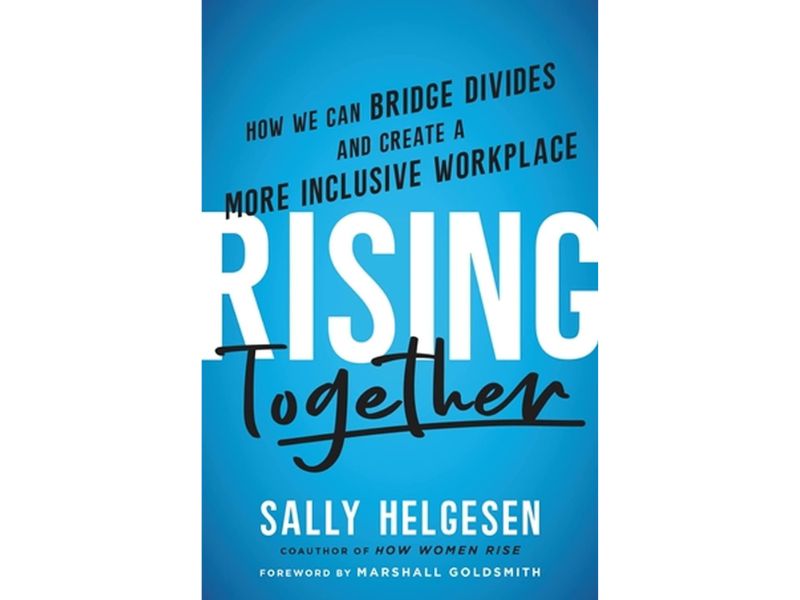Article by Nicola Kenyon
 Personal branding is probably one of the biggest marketing buzzwords of the past decade, but what does it really mean?
Personal branding is probably one of the biggest marketing buzzwords of the past decade, but what does it really mean?
Is it all about social media, having a strong LinkedIn profile picture or sharing your expertise far and wide?
The answer is a carefully constructed mix of all of the above. Building a personal brand takes time and hard work, leading many to question its value. But in an increasingly competitive job market, personal branding can be crucial for standing out from the crowd, whether you’re looking for your next role, contract or a new client.
These tips will help you understand what a personal brand is, why you may need one and how to build up your profile.
What is a personal brand?
A personal brand is basically a strategy for how you present yourself to the business world. Personal brands turn people into products, marketing people in the same way that they might market a product or service. This could be things like making sure that the messages you portray on the internet are always consistent, using signature imagery or a colour scheme and ensuring that your customers can find you on all of the appropriate platforms.
Why are personal brands important?
It goes without saying that a personal brand will help to raise your own profile. But, it’s also much more than just promoting your CV. Personal branding allows you to position yourself as an expert in your product or service, and gives you a polished, recognisable brand that your target customers can associate with you. Ultimately, people do business with people, so marketing yourself as an approachable expert in your field will help you to build valuable working relationships both on and offline.
Building your personal brand
Distill your personal brand message
As with any effective branding, simplicity is key. Overly complicated brand messages are confusing and difficult to remember, so your personal brand needs to be short and sweet. Try to distill the essence of who you are, what you’re about or what you’re trying to achieve into a single sentence. For example, are you a baker who is looking to share their expertise and boost sales of your baked goods subscription boxes? Or, are you a new graduate trying to land your first job? Avoid unnecessary detail in your brand message, such as unrelated hobbies or interests that do not align with your goal. It might be great that you have a passion for football, but if your goal is to position yourself as a reputable legal expert, then perhaps tweeting about the results of last night’s game might not be the best decision.
It’s crucial to be authentic and for your personal brand message to be true to your talent, skills and ambitions. Authentic personal brands are easier to maintain, as they play to your strengths, and are more likely to receive genuine engagement from your target audience.
Define your target audience
Who is your personal brand trying to reach? And who will be interested in what you have to say? Knowing and understanding your target audience is a key step in effective product branding, and your personal brand is no different. Defining who you’re speaking to will help you make sure that the way you speak to your audience through your personal brand is appropriate; that you use the right language, tone and share relevant content and expertise.
Look into who your target audience are currently following and engaging with, or research people in your industry who are already effectively branding themselves as experts to get a feel for the types of content and language that are used.
Pick your platform carefully
Often when people start a personal brand they spread themselves thinly by starting profiles on lots of different social media platforms. So, instead of taking on too much at once, pick one platform that you want to promote your message on. If your goal or skills are more visual, then Instagram or YouTube could be great places to start, whereas if you’re interested in sharing more written communications, Twitter or LinkedIn might be better options. Maintaining a personal brand can seem overwhelming when you’re trying to juggle multiple platforms, so instead focus your efforts on building a strong profile on one platform so that your time is used efficiently.
Consider colours and imagery
There’s a reason why Coca Cola’s red and white branding is instantly recognisable, or why you instantly know that an orange plastic carrier bag is from Sainsburys. Colour schemes can often be more memorable and recognisable than slogans or phrases – they convey a message or identity without using words. So, consider using a simple colour scheme, profile picture or logo across all your personal brand messaging and profiles to create a recognisable identity.
Share something that is genuinely valuable to your audience
Personal brands are a way for you to get your message or idea across to your target audience, so it’s likely that you’ll need to share content that helps you do exactly that. However, the internet is saturated with content. There are thousands of guides on anything and everything, each offering a new angle on a thought or idea. The last thing your audience needs is another mediocre piece of advice that has been churned out for the sake of having something to say. So, it’s crucial that you share valuable, insightful advice or content through your personal brand that will resonate with your audience. If you’re a business owner, could you share an honest account of the challenges you’ve faced through setting up your business, or if you’re an expert PR, perhaps you could share clear, actionable advice on how to build relationships with journalists. Share content and advice that is authentic to you and showcases your skillset.
Be consistent
Just as you would trust a friend who always shows up on time, your audience will expect you to do what you say you will do on your platforms and be consistent. So, if you say you’re going to release a new blog post about careers advice every Monday, make sure you stick to that. Sharing your expertise and knowledge in a consistent way helps to build trust in your personal brand, and therefore you as an expert, as it proves that you are reliable and relevant. Start by drafting a schedule of how and when you want to share your personal brand message, whether it’s once a week on LinkedIn or every day on Twitter, and then stick to it.
If you’re using multiple channels to promote your personal brand, then ensure that you’re being consistent. Using the same profile photo across your email and social media accounts is an easy way to ensure consistency.
When used effectively, personal brands can be a great way to raise your profile and stand out within your industry. Remember to be authentic, share information that plays to your skills and be consistent and your personal brand is sure to shine.
About the author
Nicola Kenyon is the PR Manager for Patient Claim Line, a medical law firm specialist that represents clients nationwide. After qualifying as a journalist, Nicola spent several years breaking regional and local news stories, before she switched careers to join the world of corporate PR, where she worked at both agencies and in-house.


















